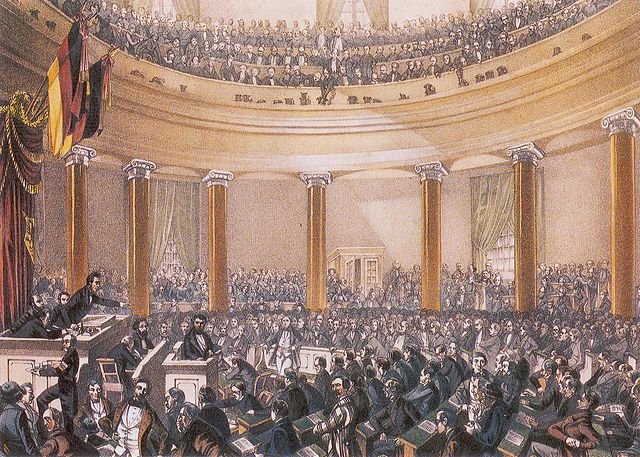Ernst Moritz Arndt was a German nationalist historian, writer and poet. Early in his life, he fought for the abolition of serfdom, later against Napoleonic dominance over Germany. Arndt had to flee to Sweden for some time due to his anti-French positions. He is one of the main founders of German nationalism during the Napoleonic wars and the 19th century movement for German unification. After the Carlsbad Decrees, the forces of the restoration counted him as a demagogue.
Arndt in his elder years; portrait by Julius Roeting
Arndt in 1848
Arndt's home in Bonn following 1819
Arndt's desk, Stralsund
German nationalism is an ideological notion that promotes the unity of Germans and of the Germanosphere into one unified nation-state. German nationalism also emphasizes and takes pride in the patriotism and national identity of Germans as one nation and one people. The earliest origins of German nationalism began with the birth of romantic nationalism during the Napoleonic Wars when Pan-Germanism started to rise. Advocacy of a German nation-state began to become an important political force in response to the invasion of German territories by France under Napoleon Bonaparte.
Johann Gottfried Herder, the founder of the concept of nationalism itself, although he did not support its program
Philosopher Johann Gottlieb Fichte is considered along with Romantic poet-soldier Ernst Moritz Arndt as the founder of German nationalism.
Depiction of the session of the Frankfurt Parliament in 1848
Germania, painting by Philipp Veit, 1848








